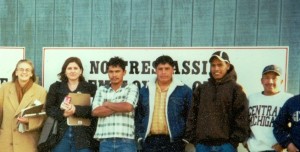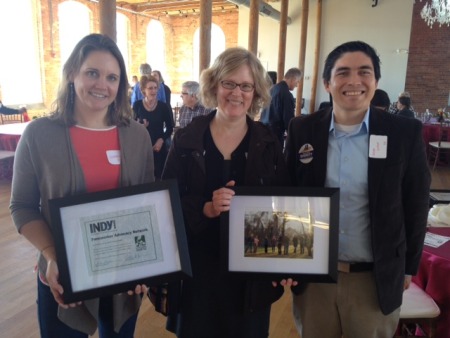Spotlight on NC FIELD
 Thursday, June 26, 2014 at 9:23AM by
Thursday, June 26, 2014 at 9:23AM by  Jennie Belle
Jennie Belle With the recent media attention focused on the Human Rights Watch report about children in North Carolina tobacco fields, I talked with Sarah Gibson, Interim Executive Director of FAN and member of NC FIELD, about their organization and their collaboration with HRW.
NC FIELD s tands for North Carolina Focus on Increasing Education, Leadership & Dignity and is located in Kinston, NC. NC FIELD was founded in 2009 by a group of community members and outreach professionals to address the needs of agricultural communities in Eastern North Carolina. NC FIELD has created a model for farmworkers and farmworker youth to have a voice in issues that affect them. NC FIELD’s core programs include capacity building as a partner to the farmworker community; developing popular education projects that empower farmworkers to resist dangerous heat, pay-gouging, and criminal behaviors of labor contractors; and providing opportunities for farmworkers to learn how to utilize their agricultural knowledge base to generate income.
tands for North Carolina Focus on Increasing Education, Leadership & Dignity and is located in Kinston, NC. NC FIELD was founded in 2009 by a group of community members and outreach professionals to address the needs of agricultural communities in Eastern North Carolina. NC FIELD has created a model for farmworkers and farmworker youth to have a voice in issues that affect them. NC FIELD’s core programs include capacity building as a partner to the farmworker community; developing popular education projects that empower farmworkers to resist dangerous heat, pay-gouging, and criminal behaviors of labor contractors; and providing opportunities for farmworkers to learn how to utilize their agricultural knowledge base to generate income.
NC FIELD has developed a relationship with HRW whereby NC FIELD connects HRW with interviewees during their research phase. NC FIELD also works to ensure that farmworkers have the opportunity to participate in the policy debates and media coverage that follow the release of HRW reports. The partnership began in 2009 before NC Field’s official establishment and led to the 2010 report "Fields of Peril: Child Labor in U.S. Agriculture". Later, HRW staff returned to eastern North Carolina to work with NC FIELD as part of an investigation into sexual harassment of children and women. Since then, NC FIELD and HRW have continued to develop a strong collaborative relationship among these three groups: farmworkers, whose stories are the pillar of advocacy efforts, NC FIELD as organizers and facilitators, and HRW as an internationally recognized advocate for human rights issues. Photo credit: Peter Eversoll
Photo credit: Peter Eversoll
Sarah Gibson says of the relationship, “Working with Human Rights Watch has been a real privilege. Since the beginning of our partnership, there's been a dynamic of mutual respect for what all parties bring to the table. We appreciate their understanding of grassroots organizing, their reputation in the policy world, and their thorough research into the issues that farmworkers experience on a daily basis. They value our insight into the implications of policies and media attention on farmworkers' daily lives, and our history of building deep relationships within the farmworker community that help HRW stay in touch with the needs and realities of the communities experiencing human rights abuses.”
For the recent report, NC FIELD worked with HRW to ensure that farmworker youth were in DC to talk to policymakers and media during the weeks following the release of the report. Gibson notes that this is important because it gave a face to the news about child labor and harmful practices on tobacco farms. She says, “It’s infinitely more effective for policymakers to have a personal conversation with a child tobacco worker than to read that same child's quote in a report.” Photo credit: Peter Eversoll
Photo credit: Peter Eversoll
If you want to help NC FIELD and its work with farmworkers and their families in NC, you can take action in the following ways:
- Sign NC FIELD’s petition and ask your friends and colleagues to do the same
- Donate to NC FIELD
NC FIELD is a largely volunteer-run organization that is working hard to balance the recent influx of media attention and requests for interviews. Their capacity is based on being able to hire more staff, including farmworkers. Your donation will help allow them to increase their capacity to continue their important work.










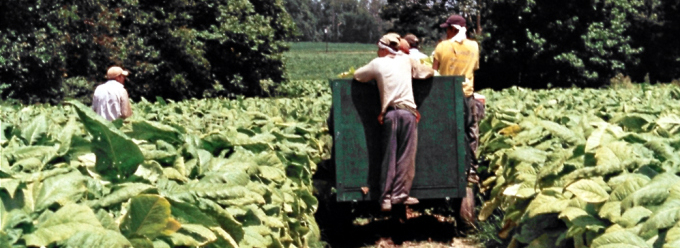
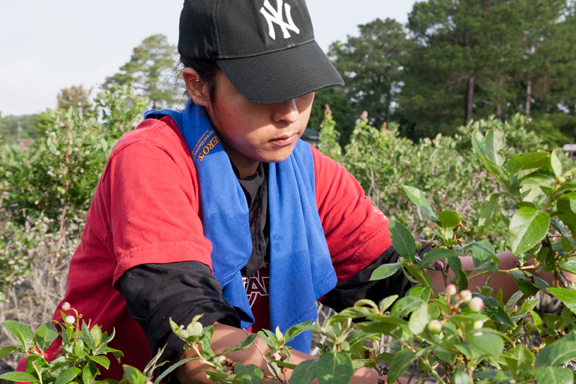
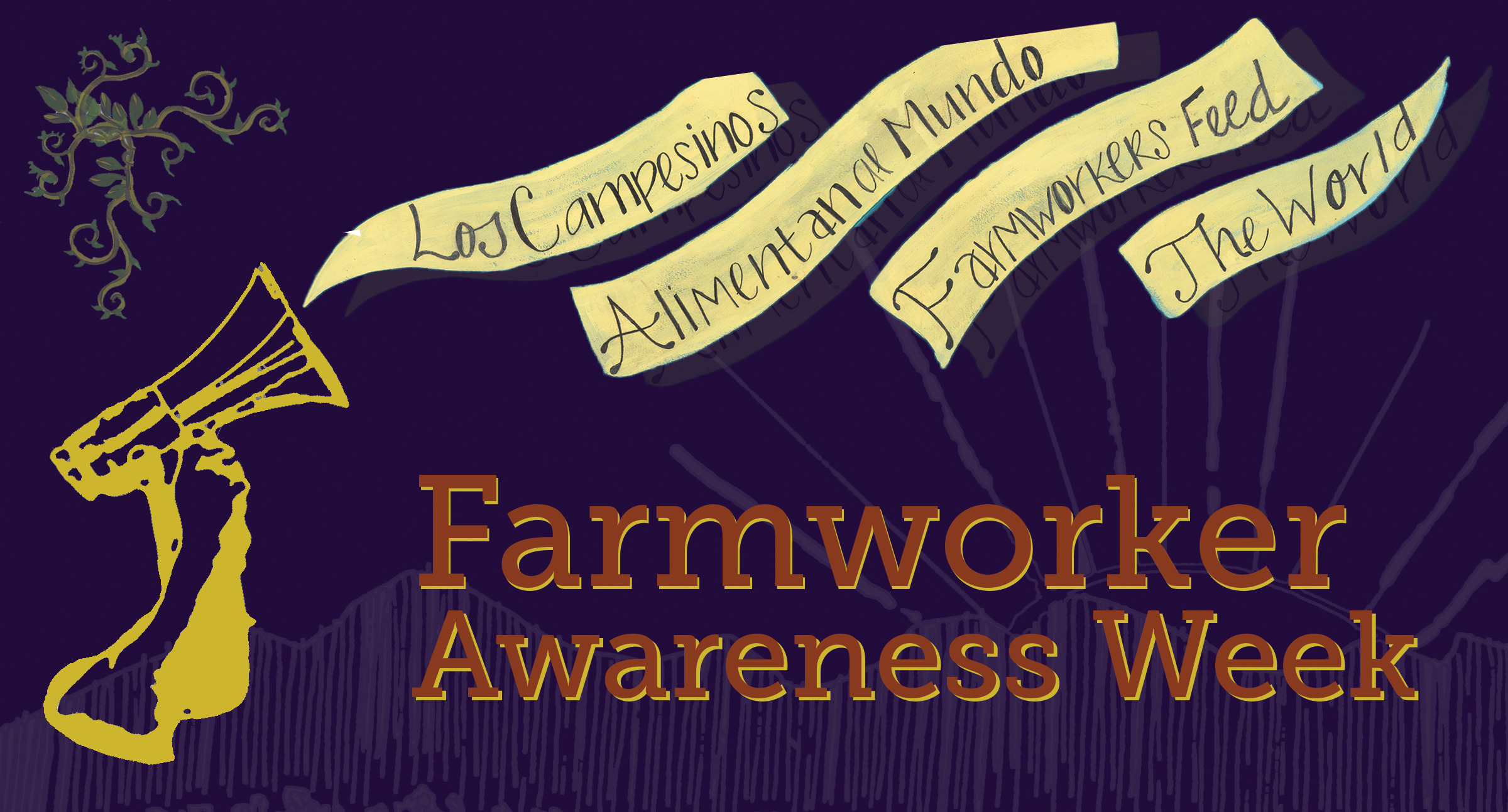

![Private property with dog[1]](http://lawatthemargins.com/wp-content/uploads/2014/01/Private-property-with-dog1-300x211.jpg)
